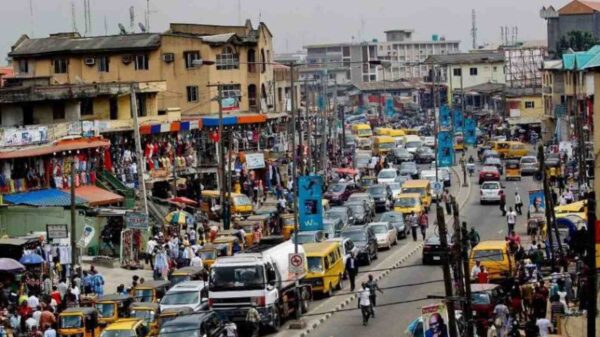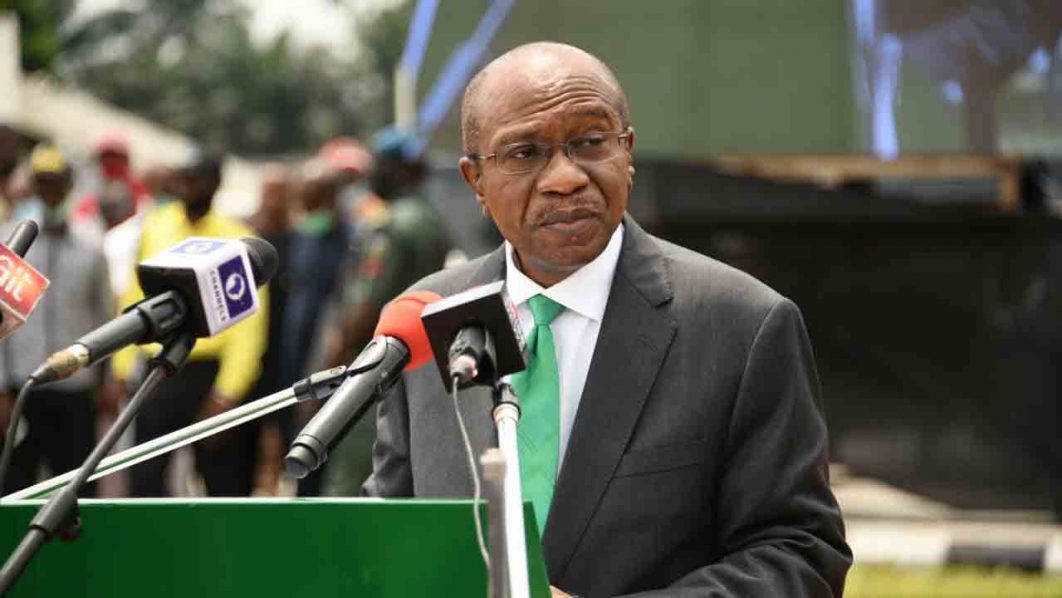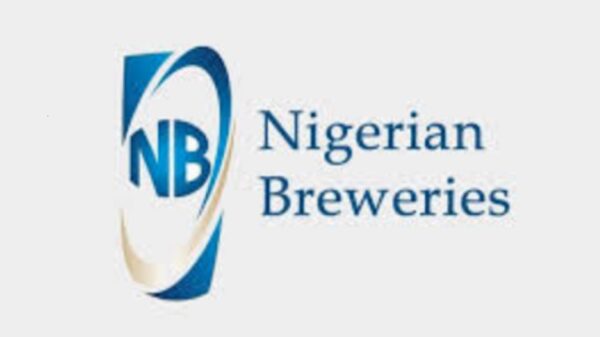The Governor of the Central Bank of Nigeria (CBN), Godwin Emefiele, has explained why the apex bank has been intervening in the critical sectors of the economy.
Emefiele said that the intervention of the CBN in the real economy is to enhance the transmission mechanism of monetary policy actions, as well as facilitate the development of financial markets through the creation of easy access to credit for investment and production.
According to a statement from the CBN’s Corporate Communications Department, this was made known by Emefiele while delivering a paper at the 40th Anniversary/Convocation lecture of Ekiti State University, Ado-Ekiti on Monday.
Emefiele, who delivered the topic, ‘The Role of Central Banks in Managing Economic Downturns’, was represented by the CBN’s Deputy Governor in charge of Corporate Services, Mr Edward Adamu.
The CBN boss said that the idea behind the bank’s interventions in the real economy was to indirectly influence cost of production for firms and affect prices positively by improving the flow of credit.
What the CBN Governor is saying
Emefiele also said that due to the limited fiscal space as a result of the significant drop in government revenue, the CBN had to intervene with development finance tools and some monetary policy innovations to aid recovery without jeopardising price stability.
He said that central banks in both advanced and emerging markets embraced quantitative easing in order to support their economies toward recovering from the global financial crisis of 2008/2009, and the associated economic downturn triggered by the Covid-19 pandemic.
He also noted that the present administration has granted over N3 trillion in intervention funds which has helped generate employment and improve productivity.
He said, “The intervention of central banks in development financing is not new as it dates back to the 1920s.
“Many central banks in advanced, emerging and developing economies during the recent COVID-19 pandemic supported their fiscal authorities. The aim is to aid recovery of their economies following the significant decline in global growth occasioned by the pandemic.
“These central banks, particularly in developing countries, intervene in the real economy to enhance the transmission mechanism of monetary policy actions. As well as facilitate development of financial markets through the creation of easy access to credit for investment and production.
“It is thus undeniable that development finance interventions are frequently an integral part of the recovery strategy in most countries.’’
The CBN governor expressed worry that the country’s manufacturing sector contributed less than 15% of the Gross Domestic Product (GDP) and decried the continuous importation of many commodities that Nigeria had the capacity to produce and export.
He said, “To address this challenge, we have accepted the charge of President, Muhammadu Buhari for the country to produce what it eats and eat what it produces.
“The CBN, working with Deposit Money Banks and participating financial institutions, is focused on critical areas such as the agricultural and manufacturing sectors.
“We have granted more than three trillion naira in intervention loans that have aided economic recovery and employment generation.
“Given the limited fiscal space due to the significant drop in government revenue, the CBN has had to intervene with development finance tools and some monetary policy innovations to aid recovery without jeopardising price stability.’’
What you should know
- The CBN in conjunction with the federal government had introduced some intervention programmes in the wake of the outbreak of the Covid-19 pandemic to mitigate the impact on businesses and households.
- Many businesses and households including women and youths, have benefited from various CBN intervention programmes. Some of those intervention programmes include the Anchor Borrowers’ Programme (ABP), Targeted Credit Facility, and Agri-Business Small and Medium Enterprises Investment Scheme (AGSMEIS).
Article Originally Published Here























































You must be logged in to post a comment Login